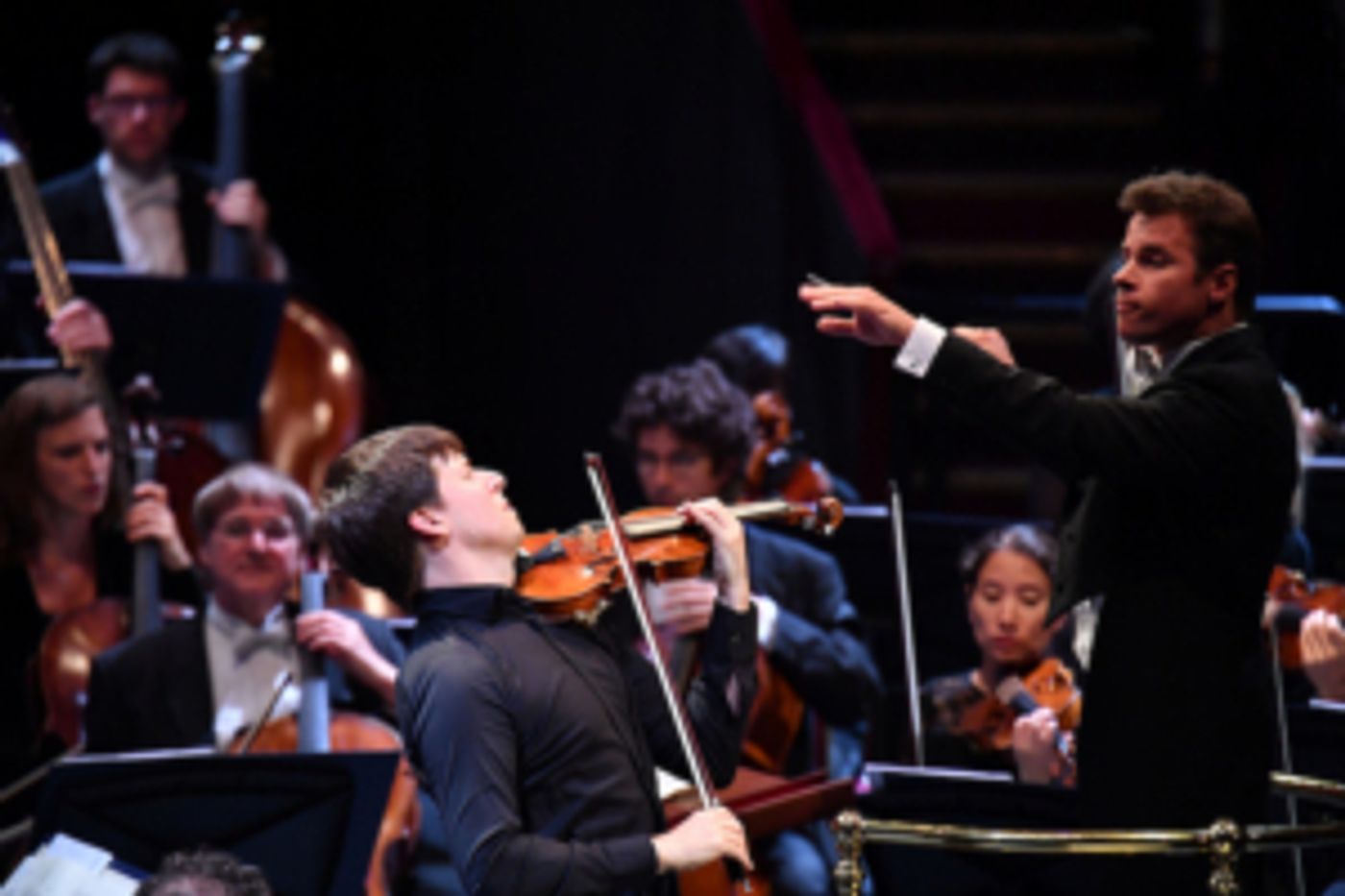Review: PROM 2: BOHEMIAN RHAPSODY, Royal Albert Hall

![]() In the whirling stretches of Bohemia's forestial maze, songs debut unsolicited in well-rehearsed soprano voices of melodic birds, whooshing boughs whisper faint imitations of strings' tremolos, and droning wasps augur the plight of prey with brass-like death knells.
In the whirling stretches of Bohemia's forestial maze, songs debut unsolicited in well-rehearsed soprano voices of melodic birds, whooshing boughs whisper faint imitations of strings' tremolos, and droning wasps augur the plight of prey with brass-like death knells.
If art is frequently composites of aggrandised or subverted mirrors of reality, the Bamberg Symphony's conductor Jakub Hruša doubles its aesthetic value, magnifying rarer instances of natural beauty by reflecting them in instrumental sections' subtle and refined artistic choices.
It was the jungle's animals - or players in the confines of the Royal Albert Hall - who were rhapsodic in this Prom of musically creative spontaneity: an evening of Czech music by its titans Smetana and Dvorák.
Beginning the concert with the latter's well-known Violin Concerto, virtuoso Joshua Bell lent the first movement slow, languorous chromatic scales, ribbon-like unspooling series of arpeggios and unwinding trills attenuating like an apple curl.
Where more traditional violinists may have opted for beginning phrases cautiously at mezzo forte with a medium-sized tremolo, Bell took sinuous, unpredictable routes by commencing either with a tenuous, timid texture or a brusque, jagged attack. Chopped-up staccato chords were rightly dicey in their nature. At times, Bell galvanised his tremolos of troops to play full steam ahead; at others, into dwindling, docile doses of diminuendo.
Ascending and descending rapidly in both his tempo and dynamics, the violinist's execution was the swirling loops of a rollercoaster - its seductive fragments going from sensual to whimsical and intermittently hypnotic. This particular approach, however, served at times to jeopardise the whole; with such incisive focus on the piece's gallery of trinkets, Bell sporadically diverted his attention from the work's vigorous cohesion.
Nevertheless, his encore with two of the orchestra's players of Dvorák's Cavatina for Two Violins and Viola evoked through lulling tempi and restrained crescendos slowly trickling teardrops of a babbling brook.
Throughout Hruša's assumption of the concerto's four movements, it became clear that the strings under his baton were a luscious, unbreakable, supple body; their pace, texture and volume rose and fell in varying degrees of militancy, zeal and melancholy resignation.
Where in the first movement most conductors would have failed to have motifs on woodwind safely play with interweaving chords of cautiously descending strings, Hruša plaited them to make a helter-skelter. From the baton's springboard, violins were slickly disciplined to stop with the same ease as they were goaded to be jubilant and buoyant; no wayward instrument transgressed the discipline of the ensemble's stalwart general.
Embarking then on otherworldly passages, Hruša lured listeners into the ethereal paths of Smetana's Má Vlast: six symphonic poems entitled "My Homeland". Despite a name suggesting brash pomposity, the work evokes revolving landscapes of Bohemia. More than a spool of changing photographic slides, in Hruša's hands it is a palpable pastoral journey illustrating native customs as much as it does feral outcries from the fierce, four-legged creatures of its wilderness.
A bounty of delectable artistic choices, Hruša's meticulous attention to a range of glimmers from all corners of the orchestra renders the critic's duty inexhaustible. Tempestuous strings compete voraciously with the opponent of the next motif - an exuberant parade - in the first movement Vyšehrad; lachrymose flute melodies extract the country's sombre souvenirs of yore. Mellifluous arpeggios on harps mirror innocuous drizzles of rain; teasing bounds of woodwind staccatos in the poem's beloved movement Vltava echo the first chirps of fledglings in spring.
After a martial parade in the third movement, Šárka, quick shimmering tremolos rotate the circle of strings and come back again; the parts taking their turns to glisten like the faces of a light-drenched crystal prism. Colour - that indispensable determinant that every artist is obliged to use - here makes appearances in varying degrees of texture, boasting a full-bodied chroma in the bolder, louder sections of the strings' camaraderie, diaphanous and hazy in the more languid, bashful parts.
Experimenting a little too daringly with extremely abrupt stops for silence, Hruša's insatiable conducting is an endless malleable body; endowed with a command of twisting music into sturdy shields of iron with the same ease as it executes a solo oboe's plaintive monologue of loss.
The peaks and valleys were Bohemian on this occasion. Yet they served as ample proof that likely no lands lie beyond conductor Jakub Hruša's calibre of musical depiction.
Photo credit: Chris Christodoulou
Reader Reviews

Videos


